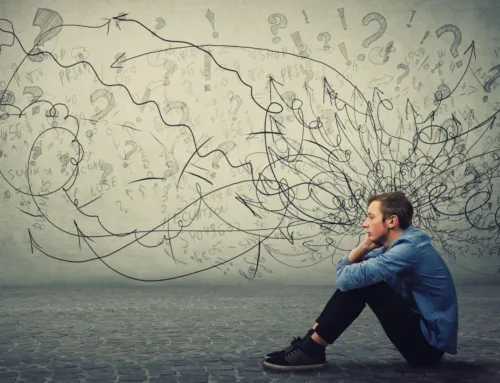The Negative Impact of Social Media on Teenage Development
The majority of teenagers nowadays utilize some form of social media. Whether it’s Youtube, TikTok, Instagram, Snapchat, etc., they know the way social media works and navigate it deftly.
But is this a good thing? Is it beneficial to them to have the entire social sphere of the internet available to them at such a young age?
Let’s find out.
Social media’s impact on mental health
A majority of the time we seek out social media in order to feel more connected. We want to see what everyone else is up to, what Jonny’s vacation looked like, what Suzy’s new baby was named, whether or not Molly committed to that haircut she mentioned.
But do we really connect more in this way? Do we look at Jonny’s vacation photos and get excited for him, or do we compare them to our own vacation photos? Are we actually invested in Molly’s haircut, or could we simply have seen it in the office tomorrow?
Many people have the hope that social media will build connections, but research, in fact, shows that “people felt worse after spending time on social media. It didn’t help them feel less isolated. It actually made them feel lonelier.”
In addition to increasing feelings of loneliness, social media minimizes genuine connection between people, increases the need for instant gratification and puts a huge majority of the population at risk for depression and anxiety. Plus, the way in which the apps are designed to work keeps users coming back – a behavior that can quickly become addictive.
Why is social media so addictive?
One McLean Hospital doctor explained the addictive nature of social media well:
“When the outcome is unpredictable, the behavior is more likely to repeat. Think of a slot machine: if game players knew they never were going to get money by playing the game, then they never would play.
“The idea of a potential future reward keeps the machines in use. The same goes for social media sites. One does not know how many likes a picture will get, who will ‘like’ the picture, and when the picture will receive likes. The unknown outcome and the possibility of a desired outcome can keep users engaged with the sites.”
This potential future reward concept combined with the validation people receive from “liked” photos keeps the dopamine-reward center of the brain engaged, and the users active on the sites. Plus, not wanting to miss out on what’s happening online also keeps many people tuning into these apps whether they enjoy their time online or not.
Social media’s effect on teens and their mental health
Teens and adults alike are vulnerable to the negative mental health effects caused by social media, but teens especially can be at risk. This is due to the formative stage teenage years are biologically – social media can significantly, and negatively, impede that formation.
The effects of cyberbullying
Sadly, almost half of teens on social media reported being the victim of cyberbullying at least once. Cyberbullying is repeated harm/harassment to any individual that manifests in the form of threats, embarrassment, humiliation, rumors or sharing content without consent online. The effects of cyberbullying are disastrous, and can include isolation, social anxiety, depression, self-harm and suicide.
Poor perception of body image
It’s no secret that social media is chock full of airbrushed, filtered and photoshopped images, and yet it’s so easy to fall into the trap of comparing your physical appearance with the photos found online. This is such a common issue, in fact, that the American Psychological Association researched and discovered that when people’s time online was reduced by half, their perception of body image changed – for the better.
Teens are not immune to comparison, and one of social media’s effects on teen mental health is the risk of developing unhealthy lifestyle habits, including over-exercising and undereating, to alter one’s physical appearance to reflect what is socially “acceptable” online.
Decreased communication skills
When we spend time with each other in person, we learn to read facial expressions, body language and other cues that are important for engaging with others and building relationships and community. Teenage years are crucial for developing these skills.
But when communication skills are learned via texting, messaging, etc., the ability to communicate properly is not developed. This can lead to significant issues in the long run, including difficulty communicating with employers, partners in romantic relationships and even friends and family members.
Overly available
Being so tied into social media, with notifications constantly popping up on the screen of your phone, leads to a sense of hyperconnectivity and needing to be available 24/7. But the reality is, our brains cannot function at that level of being totally present to the online world and totally present to the real world in front of us at the same time.
Being available around the clock can lead to a heightened sense of anxiety; teens might spiral into thoughts like, “What will he think if I don’t respond right away?” “Will she be mad if I reply to that video later?” This can lead to intense anxiety, as feeling hyperconnected never gives you the chance to step away, relax and recharge in peace.
Seeking help for teen mental health
Teens and social media’s impact on their mental health is a big topic that is continuously being explored and researched. But helping your teen understand the implications of constant social media use and helping them set boundaries around it will give them the best chance at avoiding and/or overcoming mental health conditions social media causes.
To learn more, or to get additional help for your teen today, contact Tapestry Recovery at 828-490-4032 or online anytime.






